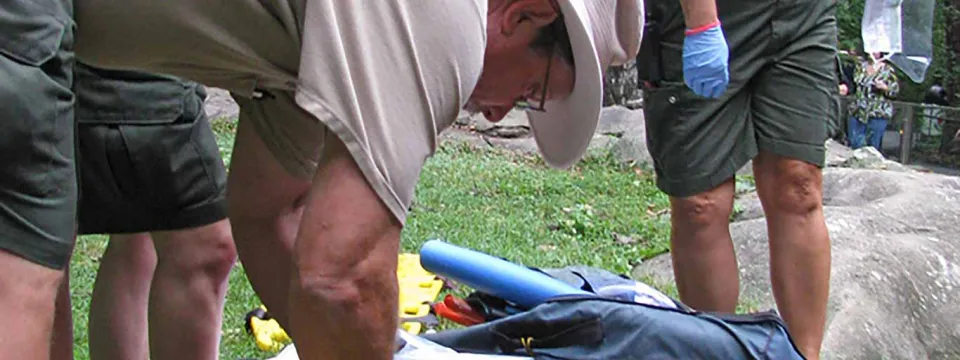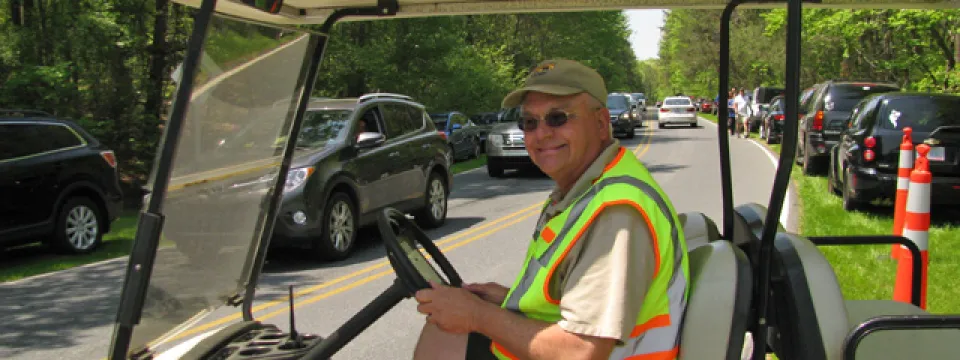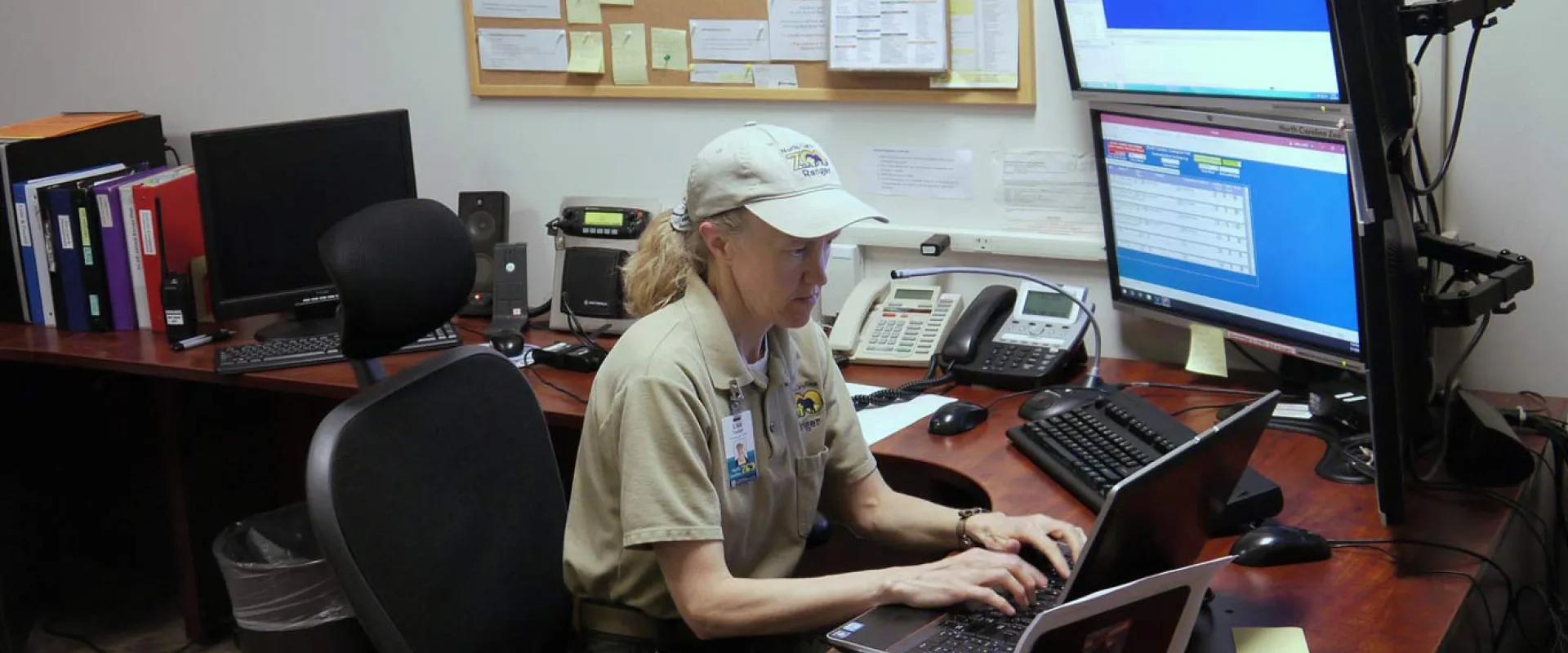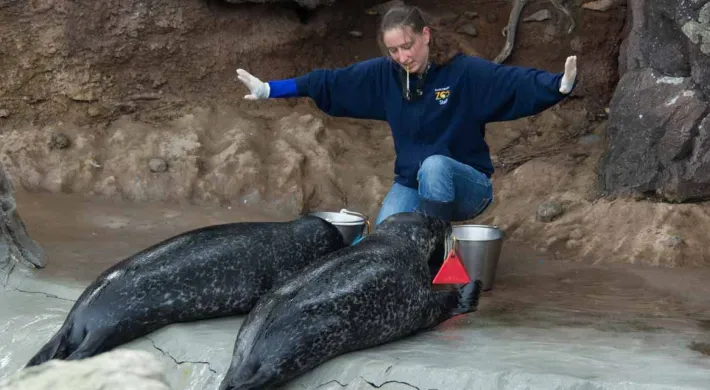Bob Langston, Sustainability and Conservation Outreach Coordinator
Years ago, the North Carolina Zoo widely embraced the word “Zoology” in our title. When initially conceived, we were known first as “The North Carolina Zoological Park and Gardens,” then later as “The North Carolina Zoological Park.” Some people make the connection that everybody working at the zoo has education in the field of zoology.
To clear a minor point, “Zoo” does originate with the word Zoology. Though our mission is to share experiences and provide education, while working to protect animals and natural habitats, much of the work here does not require specific education or training in the area of animal biology.
One work group, fundamental to the safety and security in and around our facility, falls into this category—Zoo Rangers.
Rangers interact with other members of the Zoo staff as well as our large base of guests. Within the space of a day, rangers may provide directions to any of the Zoo exhibits, attractions, dining facilities or even the closest restroom. Rangers may escort delivery drivers to the warehouse, direct traffic around a fallen tree or assist guests to a parking space.
When Zoo guests discover that their car has a flat or a dead battery, rangers are prepared to help with an inflator or a set of jumper cables.
When a Zoo guest has a problem locating their group, rangers will be dispatched to guarantee that everybody is reunited.
This work group serves as both our front line for safety and park security. Across a 24 hour day, three shifts patrol the grounds noting hazards or maintenance concerns. These may be anything from winter ice accumulations, downed trees, power outages or leaking pipes. Park patrols make sure all gates are closed when they are supposed to be, and open when appropriate.
The Zoo has our own internal communications network which serves as a hub for information distributed throughout the park on multiple radio channels. Operated by the ranger crew, the Zoo communications center (abbreviated “Zoo Com”) includes the radio base station, weather alert systems, telephones and an automated logging system to maintain communication records.
In order to provide the greatest level of safety for both staff and guests, all of our permanent, day-shift rangers must either have or earn an Emergency Medical Technician certification. Since we are never able to predict exactly what sorts of medical situations may unfold each day, our ranger crew participates in drills and weekly training sessions.

At the most basic level, all potential Zoo rangers must have completed high school and possess a year’s experience in some form of security work. Allowances can be made for comparative experience or training, but this means that candidates will understand security and safety practices. A valid North Carolina driver’s license is required.
Qualities desired for the best candidates come back to that emphasis on customer service. Prior experience in public settings, such as museums or parks, prepares interested candidates to provide the most positive face-to-face interactions with Zoo guests.
The proper mix of experience, training and attitude merge to make Zoo rangers an incredible asset, assuring that each guest has amazing memories of the day’s experience at the North Carolina Zoo.


